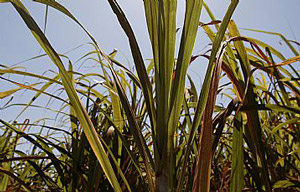TOYOTA TSUSHO
Manufacture and marketing of “bio” PET kicks off / Multinational project with global reach
 Brazil's Petrobras will transport its bio-ethanol to Taiwan, where it will be converted into MEG (Photo: Petrobras) |
The trade division of the world’s largest automotive manufacturer Toyota has begun producing “bio” PET. For this purpose, the Toyota Tsusho Corporation (Nagoya / Japan; www.toyota-tsusho.com) has secured the supply of bio-ethanol from Brazilian oil giant Petrobras (Rio de Janeiro; www.petrobras.com.br). The feedstock will be transported to Taiwan, where the recently founded Greencol Taiwan, a joint venture with China man-made Fiber Corporation (Taipeh / Taiwan; www.cmfc.com.tw), will convert it into monoethylene glycol (MEG). Greencol is to commission its new MEG plant by the end of 2011.
Toyota Tsusho will supply this “bio” MEG exclusively to Asian producers, who will convert it into PET on an order-by-order basis. Altogether, Greencol hopes to produce some 200,000 t/y of PET in this manner by the end of next year, which it plans to sell to Japan, Europe and North America. Part of the output is to go into textiles for automotive interior, part will be converted into bottle material, to be freely sold as “bio” PET.
Toyota Tsusho estimates that global demand for bio-PET will reach 3m t in 2015, equal to 5% of forecast global PET consumption, estimated at 40m t of fibres and 20m t of materials. Depending on how the market will develop, the Japanese group plans to raise capacity to 1m t/y.
Toyota Tsusho will supply this “bio” MEG exclusively to Asian producers, who will convert it into PET on an order-by-order basis. Altogether, Greencol hopes to produce some 200,000 t/y of PET in this manner by the end of next year, which it plans to sell to Japan, Europe and North America. Part of the output is to go into textiles for automotive interior, part will be converted into bottle material, to be freely sold as “bio” PET.
Toyota Tsusho estimates that global demand for bio-PET will reach 3m t in 2015, equal to 5% of forecast global PET consumption, estimated at 40m t of fibres and 20m t of materials. Depending on how the market will develop, the Japanese group plans to raise capacity to 1m t/y.
08.11.2010 Plasteurope.com [217722-0]
Published on 08.11.2010
